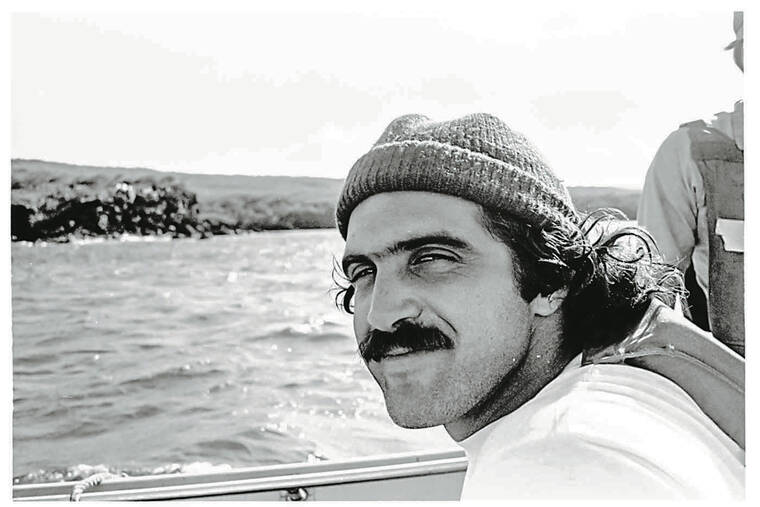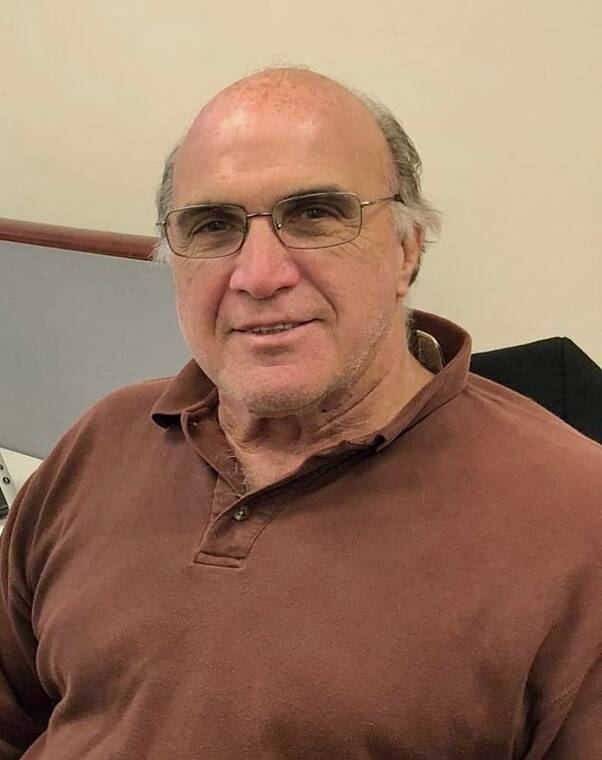Stephen Kane‘a‘i Morse,member of Kaho‘olawe Nine, dies at age 78

COURTESY IAN LIND
Stephen Morse was one of nine activists who traveled to Kahoolawe in a small boat on Jan. 4, 1976, to protest military bombing of the former Target Island.

COURTESY PHOTO
Stephen Kane’a’i Morse


Stephen Kane‘a‘i Morse, a member of the Kaho‘olawe Nine who traversed the Alalakeiki Channel from Maui to the former Target Island in 1976 in an effort to repatriate the latter from the U.S. Navy, died Sept. 29 at The Queen’s Medical Center-West Oahu after a nine-year battle against cancer, his family said.
He was 78.
Morse was born Aug. 11, 1946, in Honolulu. He graduated from the Kamehameha School for Boys, where he helped lead the football team to the Interscholastic League of Honolulu championship. A graduate of Beloit College in Wisconsin, Morse went on to earn a master’s degree in social work from the University of Hawaii at Manoa.
In 1974, he co-founded the Hawaiian Coalition of Native Claims, predecessor of the Native Hawaiian Legal Corp. His other professional roles spanned from being a founder of Alu Like, a non-profit that provides employment and job training services and other programs to bolster Native Hawaiian families, kupuna and at-risk youth, and serving as housing director for the state Office of Hawaiian Affairs.
He also co-authored “The Spirit of Kaloko-Honokohau” report that helped establish the Kaloko-Honokohau National Historical Park in Kona.
Morse served as a Lili‘uokalani Trust social worker, executive director of the nonprofit Blueprint For Change and former president of the Kamehameha Class of 1964 alumni group. He helped train the inaugural 1976 Hokule‘a voyaging canoe crew that sailed to Tahiti using celestial navigation. And he cultivated banana, papaya, taro, lei flowers and sago palms on a 9-acre family farm in Waimanalo.
Don't miss out on what's happening!
Stay in touch with breaking news, as it happens, conveniently in your email inbox. It's FREE!
“Steve was very dedicated to his family and to his friends, but also to his work to help the children of Hawaii; he was a great advocate for them,” said Woody Vaspra, Morse’s high school and college football teammate and fraternity brother.
“Being among the Kaho‘olawe Nine was great too, but it was just wonderful what he was doing for the betterment of families and especially the children of Hawaii.”
Perhaps Morse’s most remarkable venture was joining the storied activist group that made a small-boat run to Kahoolawe in the face of U.S. military resistance. The members of the so-called Kaho‘olawe Nine — who included Dr. Noa Emmett Aluli, Kimo Aluli, George Helm, Ian Lind, Ellen Miles, Gail Kawaipuna Prejean, Walter Ritte and Karla Villalba — were trying to occupy the 11-mile-long island in protest against 35 years of military practice bombing there.
Morse chronicled the landmark event in the 2014 book, “First Landing: Story of the Kaho‘olawe Nine,” available on Amazon Opens in a new tab.
Following a 10-year period of ordnance removal, control of access to Kahoolawe was transferred to the state in 2003. Today, the Kaho‘olawe Island Reserve Commission is responsible for restoration and management of the island until it can be transferred to a Native Hawaiian entity to manage.
“Steve was a lot, like we all were, about making a statement about Kaho‘olawe, and much more broadly about the difficulties that Native Hawaiians face in terms of health, employment, education and other aspects,” said Lind, who went on to become an investigative journalist. “He was always looking for ways to help. His passing is a big loss.”
Ritte, a Molokai activist, recalled a weeklong circle- island trek on the Friendly Isle organized by former Honolulu Advertiser publisher Thurston Twigg-Smith, with columnist Bob Krauss and Morse writing daily articles on the expedition.
Ritte said the Sept. 1, 1982, newspaper series “showed two different perspectives. It was amazing how a non-Hawaiian saw the experience and how Steve wrote about it.”
From the Kahoolawe and Molokai episodes, Ritte said, “I knew the potential of Steve. He was really, really active in the Hawaiian community. His death is a big loss for us, and it’s sad.”
Morse’s daughter, Kealohalani Morse Gebbia said of her father’s death,“We lost a piece of some very important history. He was one of the great warriors of Hawaiian culture, and he tried to strengthen the culture.”
Memorial services will start at 1 p.m. Nov. 30 at Kaiona Beach Park in Waimanalo.
Morse is survived by six children: Michael Kalaniopu‘u (Mary Rose) Morse, Kamaka‘imoku Heather Morse, Kealohalani (Robert) Morse Gebbia, Gery (Celine) Graham, Angelique (Sommer) Kahao-Poe and Noa (Joleen) Morse, and 15 grandchildren.



